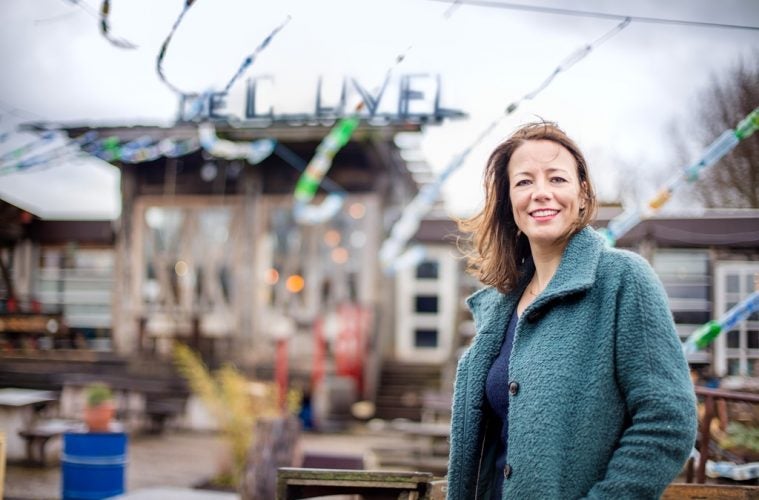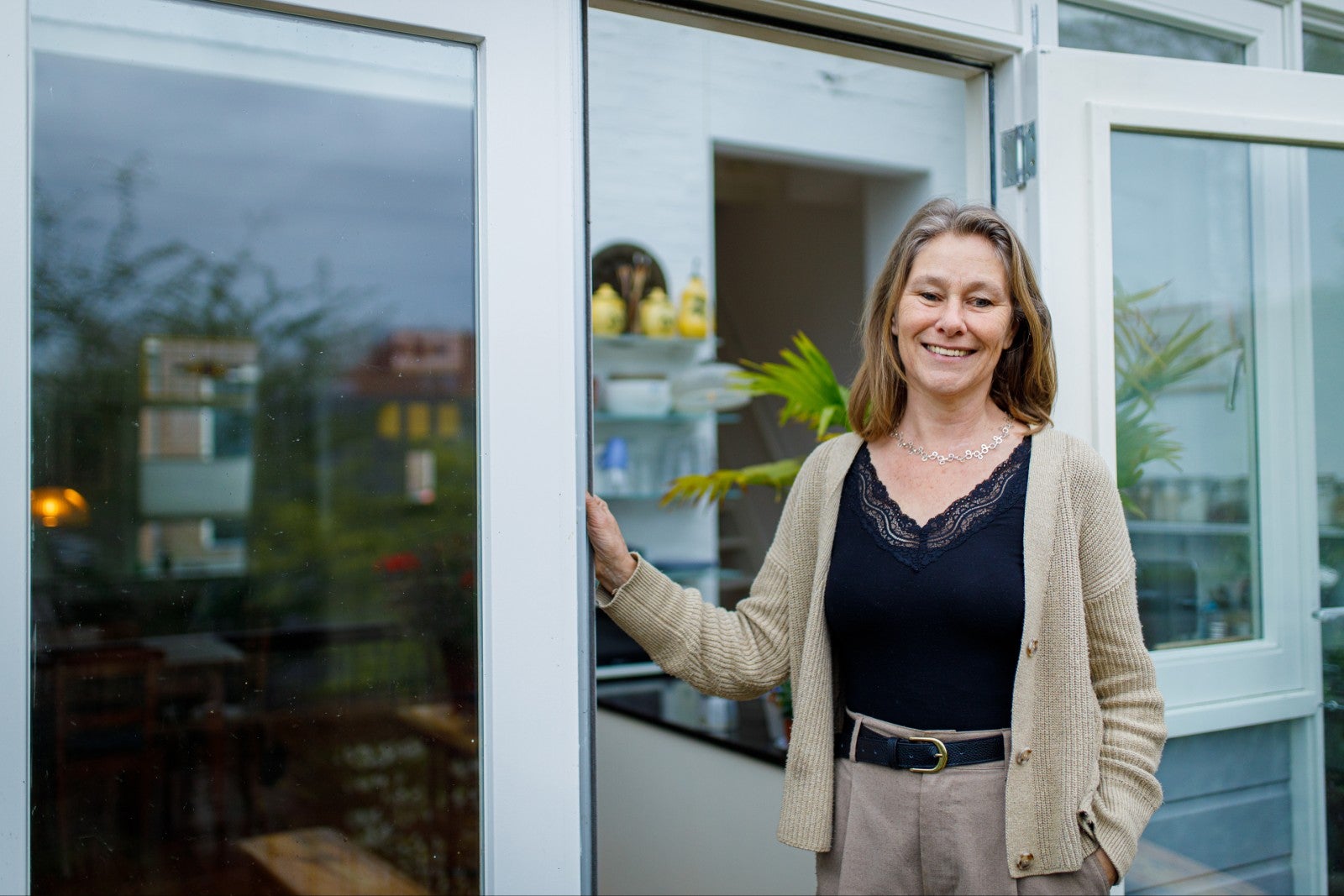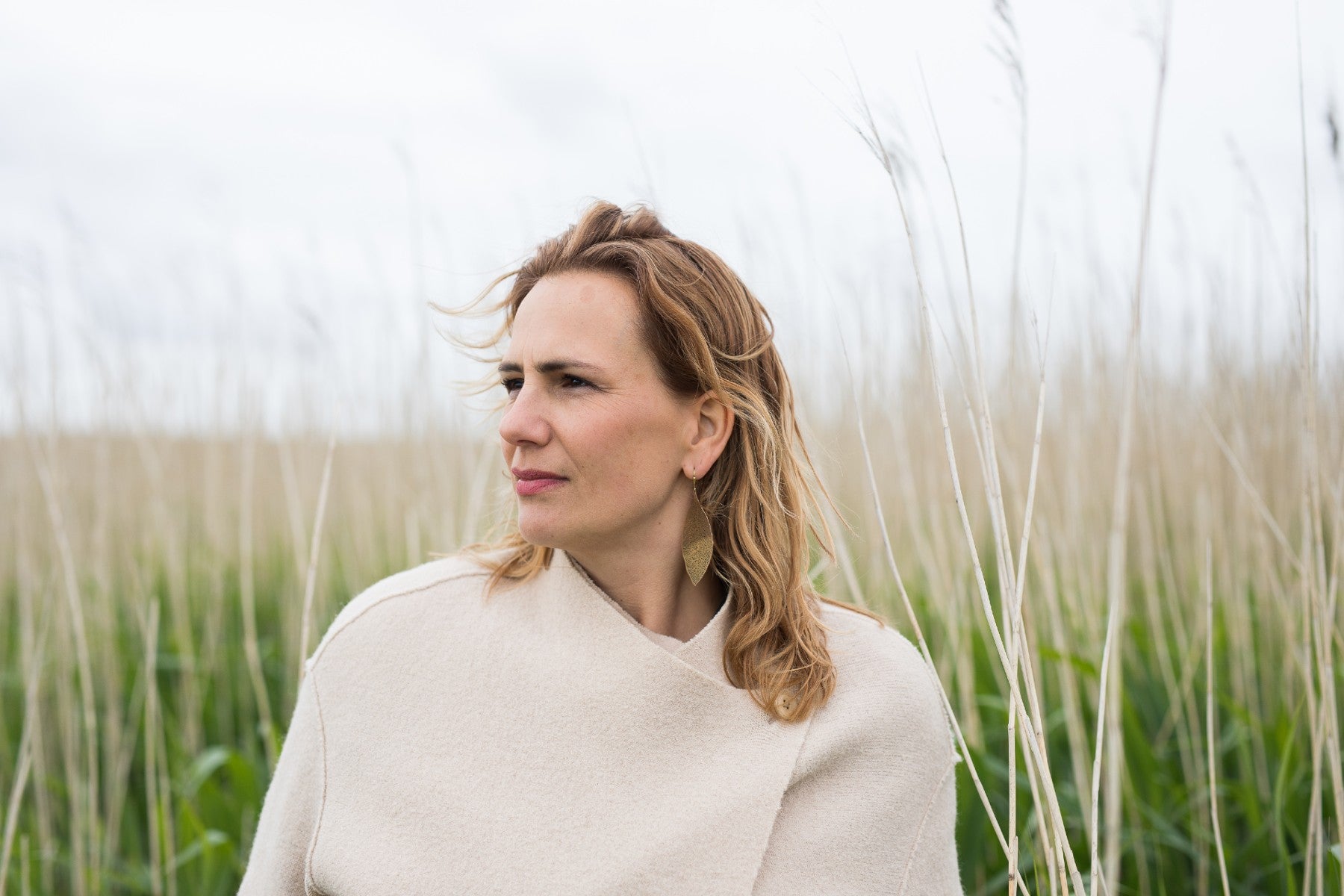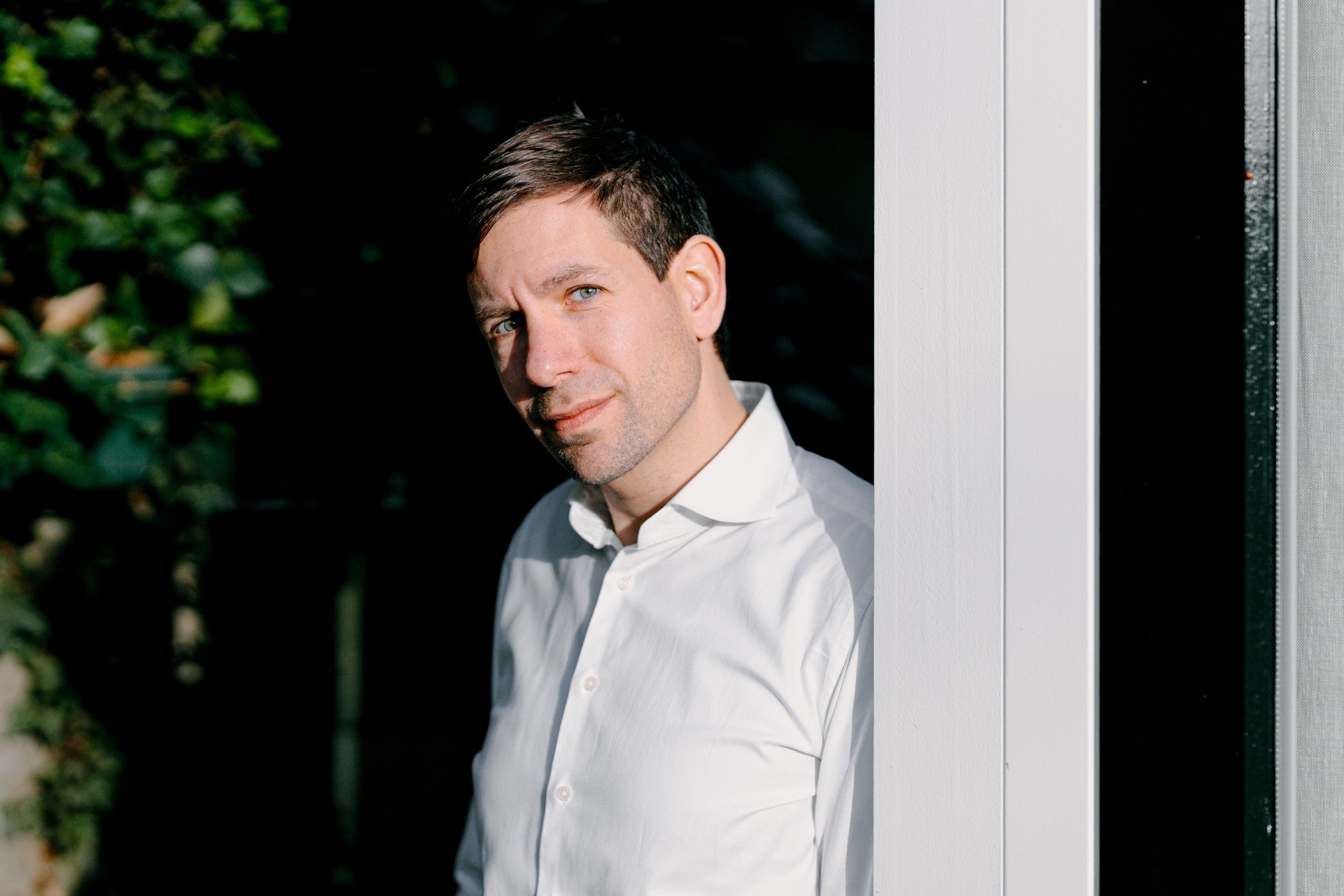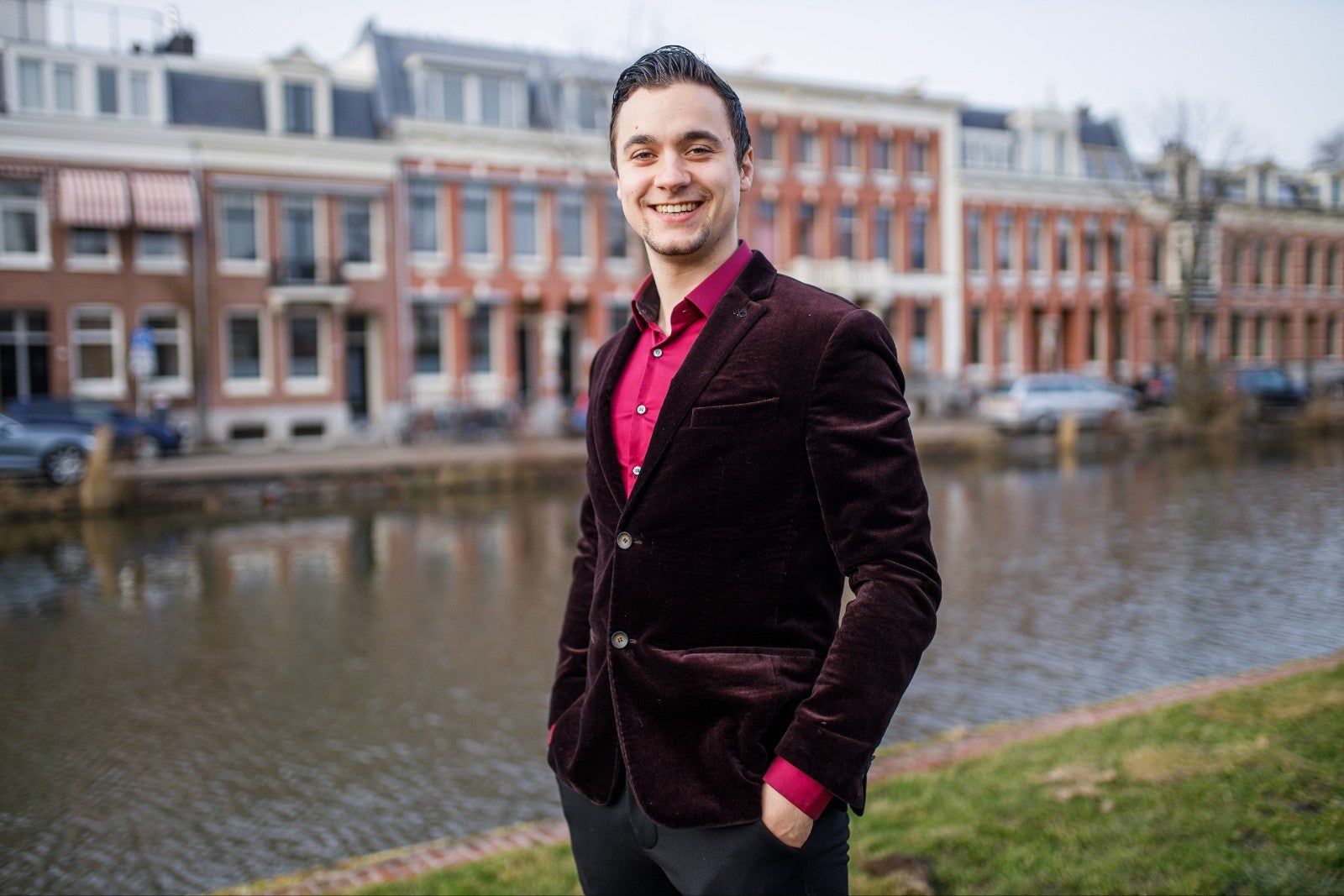Commercial and social business, that’s her mission. Lonneke Craemers (38) studied social and cultural sciences and prefers working as a kickstarter at startups, but also at existing companies. She has recently left Dopper and has now started working with the circular company Mudjeans, among others. ‘Once something has got going, I prefer helping set up something new again.’
What did you manage to achieve as interim director of Dopper Foundation? ‘Dopper now donates about half a million euros to the foundation every year, so it’s very important to consider how that money can be used to actually contribute to Dopper’s mission: increasing access to clean drinking water and reducing plastic waste.
‘About half of all donations went to Simavi’s water projects in Nepal. In order to learn more about these impact areas, I went to Nepal with a photographer, filmmaker, writer, and a musician to see the drinking water and plastic situation there with my own eyes. They all created their own story, motivated by the vision of Dopper Foundation. Plastic waste turned out to be an enormous problem that had hardly made it onto the agenda. The foundation has now turned to tackling this issue together with Simavi. I also started investigating investments in local companies that collect rainwater and collect and recycle waste. Now others will be able to continue the work, because we’ve put up solid foundations.’
Is that the best role for you? ‘Yes, I’m more of a kickstarter. Once it comes down to management and the work starts becoming repetitive, there are others who are better suited to the task. Making sure that an idea is actually put into practice is my favourite part. Once something has got going, I prefer helping set up something new again. Whether that’s with a startup, existing companies that want to bring impact to their business or become more sustainable, or with NGOs, which often don’t realise the potential that a commercial approach could offer.’
‘For me, there’s nothing more inspiring than people with ideas that make the world a little more beautiful.’
‘I’m now going to be working with MudJeans part-time [sustainable jeans that you can lease or buy, ed.]. The clothing industry produces a lot of pollution, second only to the oil industry. MudJeans wants to show us that it’s possible to change the system by focusing on the circular economy. They make beautiful jeans, which they recycle into new jeans after they’ve been used. They hit the nail on the head.
Why does social entrepreneurship suit you so well? ‘Because I’m convinced that we need to move away from businesses that are the best in the world, in favour of businesses that are the best for the world, at which point all entrepreneurs will be social entrepreneurs. I love creating things and for me, there’s nothing more inspiring than people with ideas that make the world a little more beautiful, especially if they actually act on their ideas as well. Being able to lend a helping hand is a huge source of motivation for me. I’m full of ideas as well and ideally, I’d like to set up an enterprise based on my own good idea. Interesting developments abound, such as blockchain technology and storytelling, which are both about transparency.
What drives you? ‘I’m someone who likes looking far ahead, and when you do that, you’ll see we need to make real changes in terms of how we deal with our fellow humans and our planet. That’s what I want to play a role in. There are people who think: at one point the earth will simply shake us off and continue without us, so what’s there to worry about? But that’s not the way I think. ‘There’s a sticker on my computer that says Make No Small Plans.’
‘In the beginning, I still felt like David against Goliath’
‘I knew early on that I didn’t just want to help solve social problems, but also wanted to work on the commercial side of things. After my graduation project for NICE in Gambia, I was given the chance to continue setting up NICE in Africa for the sustainable energy company Econcern. We used solar energy to give people access to internet and IT applications, which I saw as confirmation that what I wanted was actually possible. In the beginning, I still felt like David against Goliath, but in recent years I’ve started to notice that businesses with a positive impact are becoming more and more common. That gives me the strength to continue.’
Why did you start studying Social and Cultural sciences? ‘The visual marketing course at the AUAS was a mixture of art, psychology and economics. I enjoyed the practical side, but I felt the socio-cultural side was missing. I didn’t feel like selling diapers, just because they’re diapers, which is why I decided to combine marketing with social and cultural sciences at the VU.
Do elements of your studies recur in your current job? ‘When I enter a new business, I often think back to a series of social tests with monkeys. One of these tests involved spraying four monkeys with a hard blast of water if one of them tried to grab a banana. Ultimately, they started stopping each other. At that point, the four monkeys were replaced one by one, until all the four monkeys were new. These monkeys didn’t try to grab the banana, although they had no idea why they shouldn’t. The test is an elegant way to show the power of culture and how difficult it is to change. When I start a new project, I’ll sometimes hear: “That’s not the way we do things here.” This is the kind of banana that can really get in the way of innovation.
After your degree at the VU, you transferred to the UvA. ‘My Bachelor degree was super interesting, but, for me, it was a little too focused on the internal organisation of companies. I wanted to help solve global issues. Although I didn’t quite know what I’d do with it later, I decided on a Master in Cultural Anthropology at the UvA. There were people there who just couldn’t stand anything capitalistic or commercial, but I think that companies are a powerful part of our society. I don’t believe in shouting from the sidelines that you don’t agree with something, but that you should learn to understand systems so that you can make use of them and help effect change. That’s why my two degrees combine so well.’
CV Lonneke Craemers
1979: born in Weert | 1992-1998: VWO, Weert | 1998-1999: gap year at a community college in Iowa, USA | 1999-2004: Visual Marketing, Fontys University of Applied Sciences Amsterdam | 2001-2002: Bachelor of Social and Cultural Sciences, Vrije Universiteit Amsterdam | 2004-2008: Master of Cultural Anthropology, University of Amsterdam | 2014: Creating Shared Value, Nyenrode Business University | 2008-2013: Business development manager at IT company NICE International in Gambia and Tanzania | 2010-2011: Impact strategy projects for companies in China and Bangladesh | 2014-2015: Impact business developer at the international network of social enterprises B Corp | 2014-2016: Solar projects in Kenya | Sept. 2015: Founder at The CoFounders | 2015-2016: Impact management at Dopper | 2016: Board member at The Tipping Point Foundation | 2017: Interim director at Dopper Foundation.

